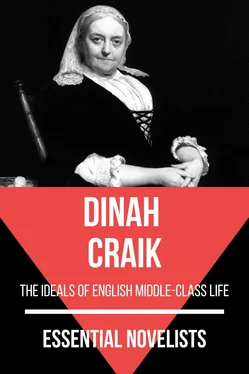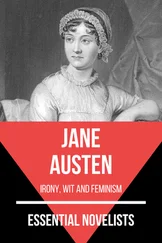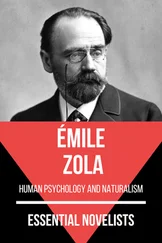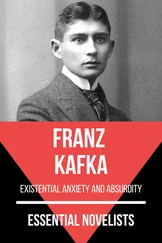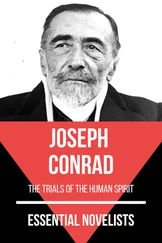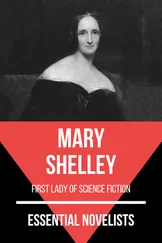“Marry her,” I repeated, mournfully.
“Ay, I could. That is what maddens me. If now she and I were to meet and stand together, equal man and woman, I could make her love me; I feel I could. Instead of crawling after her thus I would go boldly in at those very gates — do you think she is there?”
He trembled, actually trembled, at the mere thought of her being so near.
“Oh, it’s hard, hard! I could despise myself. Why cannot I trust my manhood, my honest manhood that I was born with, go straight to her and tell her that I love her; that God meant her for me and me for her — true husband and true wife? Phineas, mark my words”— and, wild as his manner was, it had a certain force which sounded almost like prophecy —“if ever Ursula March marries she will be my wife — MY wife!”
I could only murmur —“Heaven grant it!”
“But we shall never marry, neither one nor the other of us; we shall go on apart and alone till the next world. Perhaps she will come to me then: I may have her in my heart there.”
John looked upward: there was in the west a broad, red frosty cloud, and just beyond it, nay, all but resting on it, the new moon — a little, wintry, soft new moon. A sight that might well have hushed the maddest storm of passion: it hushed his. He stood, still looking up, for many minutes, then his eyes closed, the lashes all wet.
“We’ll never speak of this again, Phineas; I’ll not grieve thee any more; I’ll try and be a better brother to thee for the future. Come along!”
He drew my arm in his, and we went home.
Passing the tan-yard John proposed that we should call for my father. My poor father; now daily growing more sour and old, and daily leaning more and more upon John, who never ceased to respect, and make every one else respect, his master. Though still ostensibly a ‘prentice, he had now the business almost entirely in his hands. It was pleasant to see how my father brightened up at his coming — how readily, when he turned homeward, he leaned upon John’s strong arm, now the support of both him and me. Thus we walked through Norton Bury streets, where everybody knew us, and indeed, as it seemed to me this morning, nearly everybody greeted us — at least, one of us; but my father walked along soberly and sternly, frowning at almost every salutation John Halifax received.
“Thee art making far too many friends, John. I warn thee!”
“Not FRIENDS— only friendly acquaintance,” was the gentle answer: he was well used to turn away, daily and hourly, Abel Fletcher’s wrath. But it was roused beyond control when Dr. Jessop’s neat little carriage, and neatest of little wives, stopped at the curb-stone and summoned John.
“I want you and Mr. Fletcher to come to us tomorrow instead of this evening. Lady Caroline Brithwood wishes to see you.”
“Me?”
“Yes, you,” smiled the old lady; “you, John Halifax, the hero of the people, who quelled the bread riots, and gave evidence thereupon to Mr. Pitt, in London. Nay! why didn’t you tell me the wonderful story? Her Ladyship is full of it. She will torment me till she sees you — I know her ways. For my sake, you MUST come.”
Waiting no refusal, Mrs. Jessop drove on.
“What’s that?” said my father, sharply. “John, where art thee going?”
I knew this was the first warning-gun of a battle which broke out afresh every time John appeared in any livelier garb than his favourite grey, or was suspected of any more worldly associates than our quiet selves. He always took my father’s attacks patiently — this time peculiarly so. He made no answer, but passed his hand once or twice over his brow, as if he could not see clearly.
Abel Fletcher repeated the question.
“Yes; that was Mrs. Jessop, sir.”
“I know,” grumbled my father. “The doctor is a fool in his old age. Who did she want thee to meet?”
“She! — Oh, Lady Caroline, you mean?”
“Lady Caroline wishes particularly to see John.”
Abel Fletcher stopped, planted his stick in the ground, released his arm from John’s, and eyed him from top to toe.
“Thee? — a woman of quality wanting to see THEE? Young man, thee art a hypocrite.”
“Sir!”
“I knew it! I foresaw how thy fine ways would end! Going to London — crawling at the heels of grand folk — despising thy honest trade — trying to make thyself appear a gentleman!”
“I hope I am a gentleman.”
Words could not describe my father’s horrified astonishment. “Oh, lad!” he cried; “poor, misguided lad! — the Lord have mercy upon thee!”
John smiled — his mind evidently full of other things. Abel Fletcher’s anger grew.
“And thee wants to hang on to the tail of other ‘gentlemen,’ such as Richard Brithwood, forsooth! — a fox-hunting, drinking, dicing fool!”
I was shocked; I had not believed him so bad as that — the young ‘squire — Miss March’s cousin.
“Or,” pursued my father, waxing hotter and hotter, “or a ‘lady’ such as his wife is, the Jezebel daughter of an Ahab father! — brought up in the impious atrocities of France, and the debaucheries of Naples, where, though she keeps it close here, she abode with that vile woman whom they call Lady Hamilton.”
John started. Well he might, for even to our quiet town had come, all this winter, foul newspaper tales about Nelson and Lady Hamilton.
“Take care,” he said, in much agitation. “Any taint upon a woman’s fame harms not her alone but all connected with her. For God’s sake, sir, whether it be true or not, do not whisper in Norton Bury that Lady Caroline Brithwood is a friend of Lady Hamilton.”
“Pshaw! What is either woman to us?”
And my father climbed the steps to his own door, John following.
“Nay, young gentleman, my poor house is hardly good enough for such as thee.”
John turned, cruelly galled, but recovered himself.
“You are unjust to me, Abel Fletcher; and you yourself will think so soon. May I come in?”
My father made no answer, and I brought John in as usual. In truth, we had both more to think of than Abel Fletcher’s temporary displeasure. This strange chance — what might it imply? — to what might it not lead? But no: if I judged Mrs. Jessop aright, it neither implied, nor would lead to, what I saw John’s fancy had at once sprang toward, and revelled in, madly. A lover’s fancy — a lover’s hope. Even I could see what will-o’-the-wisps they were.
But the doctor’s good wife, Ursula March’s wise governess, would never lure a young man with such phantoms as these. I felt sure — certain — that if we met the Brithwoods we should meet no one else. Certain, even when, as we sat at our dish of tea, there came in two little dainty notes — the first invitations to worldly festivity that had ever tempted our Quaker household, and which Jael flung out of her fingers as if they had been coals from Gehenna. Notes, bidding us to a “little supper” at Dr. Jessop’s, with Mr. and Lady Caroline Brithwood, of the Mythe House.
“Give them to your father, Phineas.” And John vainly tried to hide the flash of his eye — the smiles that came and went like summer lightning —“To-morrow — you see, it is tomorrow.”
Poor lad! he had forgotten every worldly thing in the hope of that tomorrow.
My father’s sharp voice roused him. “Phineas, thee’lt stay at home. Tell the woman I say so.”
“And John, father?”
“John may go to ruin if he chooses. He is his own master.”
“I have been always.” And the answer came less in pride than sadness. “I might have gone to ruin years ago, but for the mercy of Heaven and your kindness. Do not let us be at warfare now.”
“All thy own fault, lad. Why cannot thee keep in thy own rank? Respect thyself. Be an honest tradesman, as I have been.”
Читать дальше
